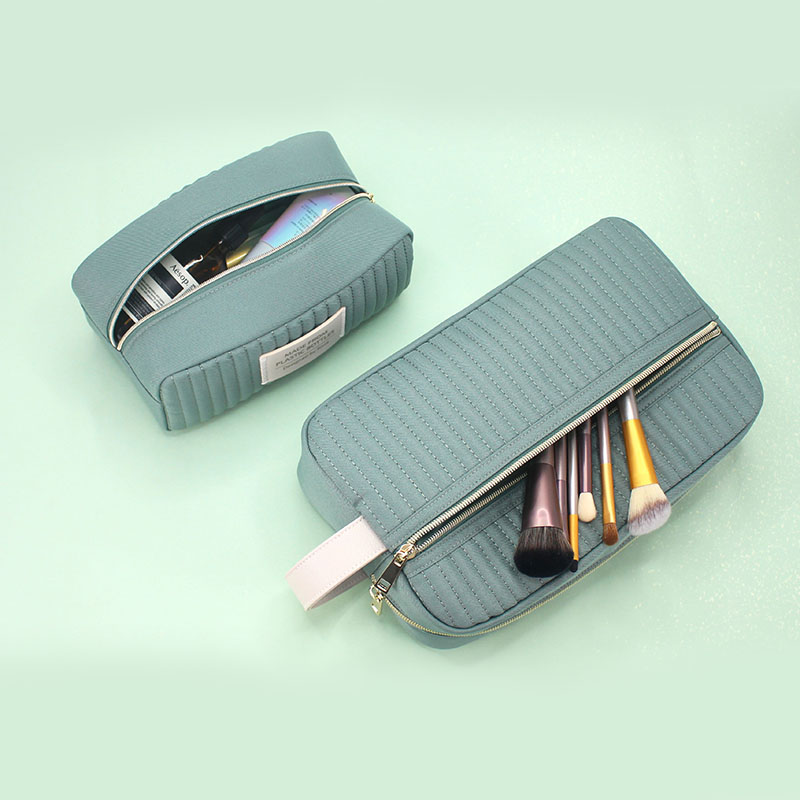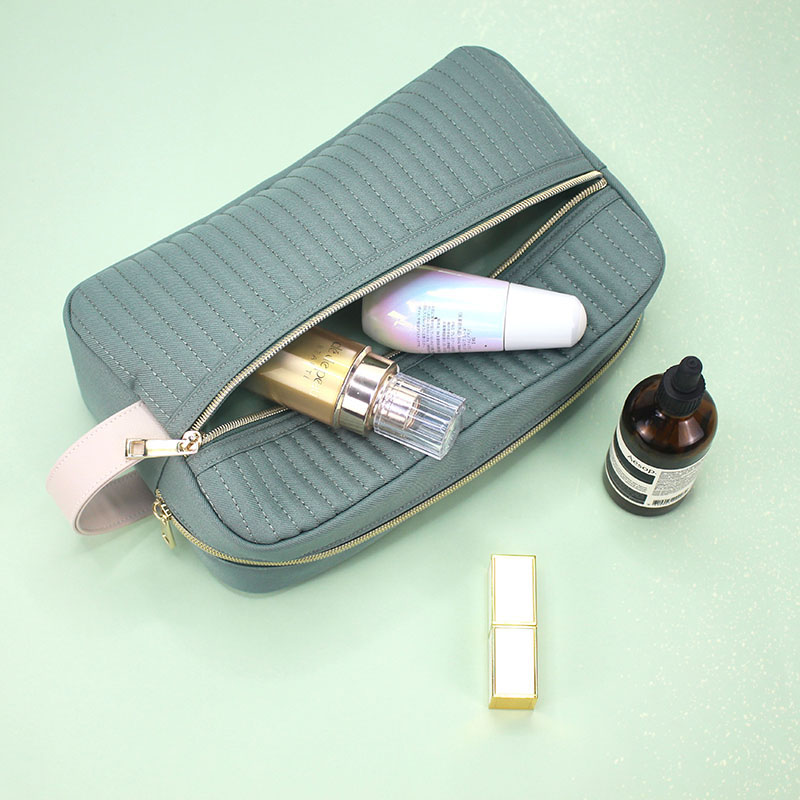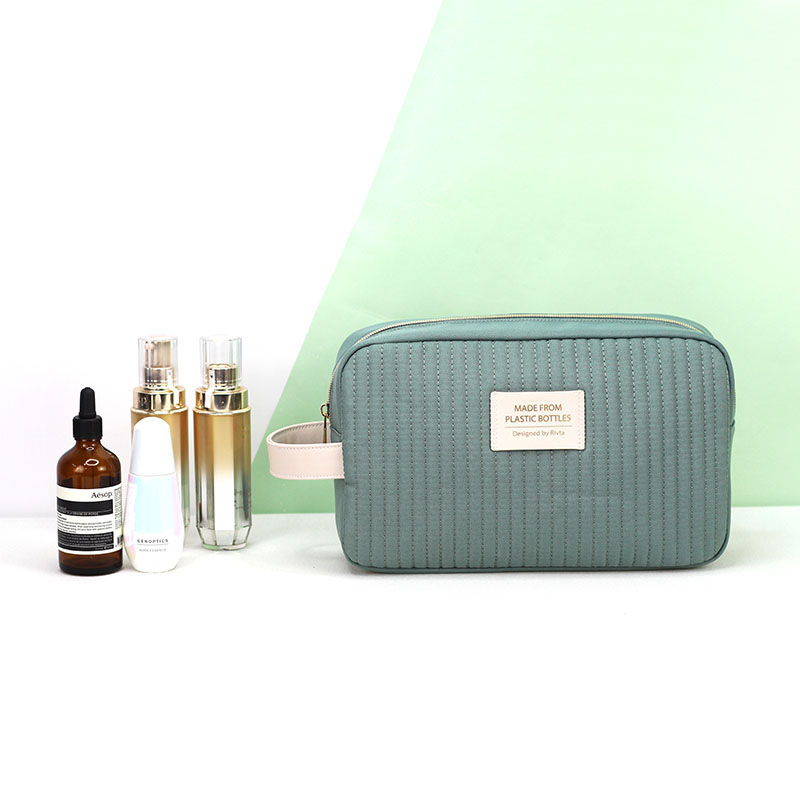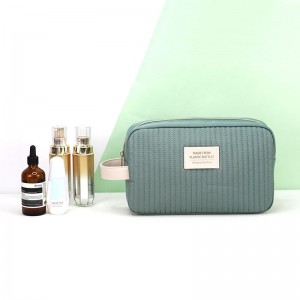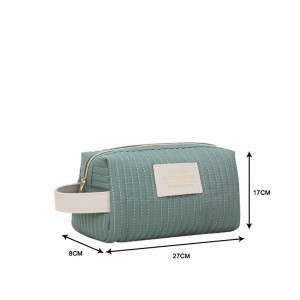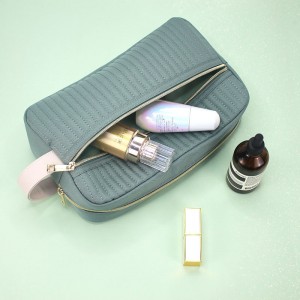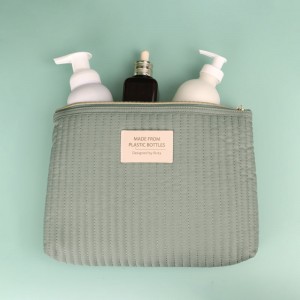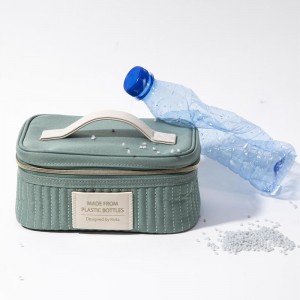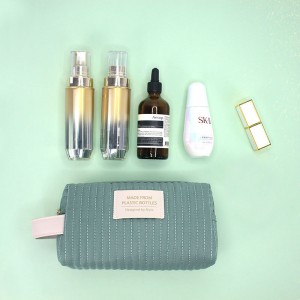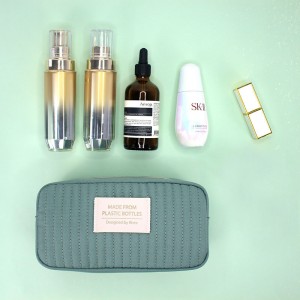Travel Essential Toilery Bag Recycled PET – CBR203
|
Pattern Type: |
Quilted |
Closure Type: |
zipper |
|
Style: |
Hotsale,Fashion |
Place of Origin: |
Guangdong, China |
|
Brand Name: |
Rivta |
Model Number: |
CBR203 |
|
Material: |
Recycled PET |
Type: |
Toiletry bag |
|
Product name: |
RPET Cosmetic Bag |
MOQ: |
1000 Pcs |
|
Feature: |
Recycled |
Usage: |
Outdoor, Home, and Evening,Makeup |
|
Certificate: |
BSCI, GRS |
Color: |
Custom |
|
Logo: |
Accept Customized Logo |
OEM/ODM: |
Warmly Welcomed |
|
Size: |
20 x 10.5 x 11 cm |
Sample time: |
5-7 Days |
|
Supply Ability |
200000 Piece/Pieces per Month |
Packaging |
59*37*56/18PCS |
|
Port |
Shenzhen |
Lead Time: |
30days/1 - 5000pcs 45days/5001 - 10000 To be negotiated/>10000 |
[ SUSTAINABILITY ] Made from 100% recycled plastic bottle . Reduce waist.
[ DURABILITY ] Certified manufacturing, with durable and strong stitching, utilizing quality materials to ensure product specifications.
[ CAPACITY ] Easy to carry with a decent size that helps you to store your beauty items and daily necessities.
[ USAGE ] Travel & Home: makeup bag, accessory organizer, gift bag, promotion.
RPET(Recycled PET)is a bottle packaging material that has been reprocessed from collected post-consumer PET bottle packaging.
PET is considered a highly recyclable plastic. Used PET containers can be washed and re-melted into plasma, from which new items can be crafted. However, it can be really hard to collect clean, high quality plastics! This means very few PET containers can re-enter the cycle as food-grade containers. Less than half of plastic bottles purchased each year make it to recycling facilities. Only around 7% of those recycled are turned back into usable bottles.
Manufacturers may not always be able to turn all salvaged plastic into new containers, but these other plastics may find a new calling as recycled polyester fabric, or rPET.
Recycling plastics also helps decrease the amount of plastic waste that enters landfills. Plastics in landfills take thousands of years to break down, and can leach toxic chemicals into the Earth. These chemicals can make their way into groundwater reserves, endangering both humans and animals. Plastics that “break down”, only do so into smaller pieces of plastic, which are still harmful to the ecosystems they may end up in.
Recycling not only provides a better option than the landfill, it also has the ability to greatly decrease our resource extraction. Over 60% of first-time PET production is used to create polyester textiles. By using PET that has already been in circulation, we’re offsetting the amount of new PET that needs to be created.
Energy is a big part of this equation, too! Creating a plastic water bottle from 100% recycled content uses 75% less energy than its virgin counterpart. Although some energy and water is still needed to process these plastics into new forms (which is why we love reusable!), the amount is significantly less than creating first-time plastics. This translates to less resource extraction, which protects the natural landscapes where oil and natural gas are extracted. This also means that there is less carbon emitted during the creation of new products. One year’s worth of recycling common plastics in the US can create the equivalent energy savings of taking 360,000 cars off the road.
